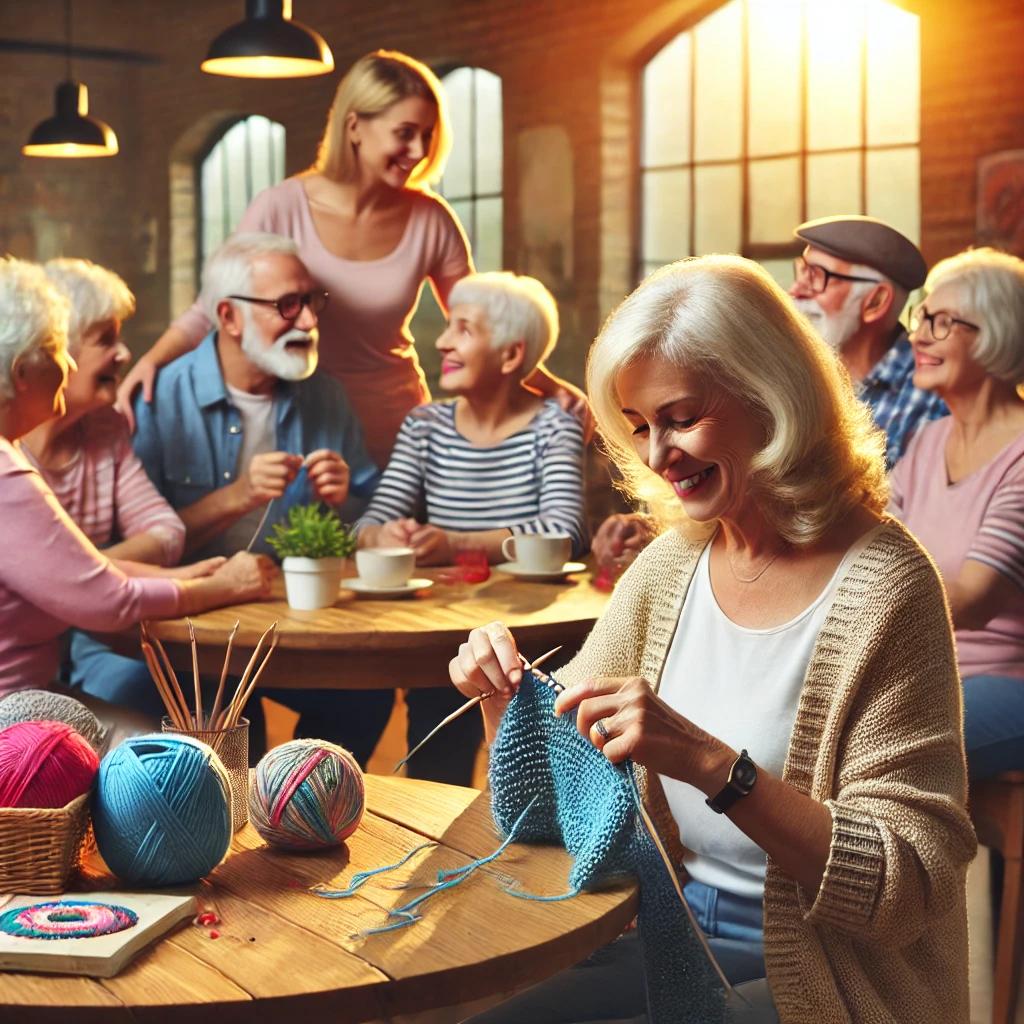Introduction
Depression in older adults is a complex condition that requires a multifaceted approach for effective management. While traditional treatments like medication and therapy continue to play a vital role, New Trends in Depression Treatment are emerging to address the unique needs of older individuals. From advanced technologies like artificial intelligence (AI) and robotics to alternative medicine, the landscape of depression treatment is evolving rapidly. These innovations aim to enhance accessibility, personalize care, and improve outcomes for older adults. For more State of the Art and proven tips visit Depression For Older Adults.

True healing often begins from within. While medication provides a vital foundation for stabilizing the biological aspects of depression, meaningful engagement offers a path to lasting improvement. Participating in activities that provide purpose and connection can reignite a sense of fulfillment, helping older adults rebuild their emotional and social well-being.
Medication as a Foundation
For clinical depression, medication is often the cornerstone of treatment. Antidepressants address the biological causes of depression, such as imbalances in brain chemicals like serotonin and dopamine. For many older adults, medication provides the stability needed to make other forms of treatment, such as therapy or social engagement, more effective. However, medication alone is rarely sufficient for long-term recovery.
Purposeful Engagement and Activities
Engaging older adults in meaningful activities, such as charity work, hobbies, or social interactions, addresses the psychological and social dimensions of depression. These activities provide a sense of purpose, reduce isolation, and boost overall happiness. Programs that involve structured socialization or creative outlets can significantly enhance the effectiveness of medication and therapy by fostering a positive mindset and resilience.
Advanced Technologies: AI and Robotics
Smart Watch for detecting Depression
- Sleep patterns, including prolonged insomnia or excessive sleep duration, tracked through devices like Fitbit and Apple Watch.
- Reduced physical activity or prolonged periods of inactivity, indicated by step counts and exercise routines.
- Heart rate variability (HRV), with lower HRV often reflecting stress or emotional distress.
- Changes in gait and movement, such as slower or hunched walking, detected through wearable sensors.
- Social interaction patterns, identified by reduced phone usage or diminished activity on social apps.
AI-Powered Tools for Mental Health
Artificial intelligence has transformed mental health care by enabling early detection, personalized interventions, and continuous monitoring. AI-powered tools analyze data from conversations, wearable devices, or questionnaires to identify signs of depression.
For example, apps like Woebot and Wysa use conversational AI to provide cognitive-behavioral therapy (CBT) techniques through a chatbot interface. These tools can offer real-time support, monitor mood changes, and recommend coping strategies. While they do not replace professional therapy, they serve as valuable supplements, especially for those with limited access to mental health services.
Robotic Companions
Robotic companions like PARO (a robotic seal) and ElliQ are specifically designed to support older adults. These robots use sensors and AI to interact with users, providing emotional support, reminders for medication, and encouragement to engage in physical activities. Studies suggest that such robotic companions can reduce feelings of loneliness and improve mood in older adults. However, they are not substitutes for human interaction but rather tools to complement traditional care.
Innovations in Treatment
Brain Stimulation Therapies
For older adults who do not respond to medication or therapy, brain stimulation therapies such as Transcranial Magnetic Stimulation (TMS) and Electroconvulsive Therapy (ECT) offer promising alternatives. TMS uses magnetic fields to stimulate nerve cells in the brain, potentially improving mood and reducing symptoms of depression. ECT, though often misunderstood, is highly effective for severe depression, especially when other treatments fail. Both methods are increasingly refined to minimize side effects and maximize benefits.
Personalized Medicine
Personalized medicine tailors treatment to an individual’s genetic makeup, lifestyle, and medical history. Pharmacogenomic testing, for instance, helps identify which antidepressants are likely to work best for a specific patient. This approach reduces the trial-and-error process, minimizing side effects and improving outcomes for older adults.
Alternative Medicine and Complementary Therapies
Mind-Body Practices
Mind-body practices such as yoga, tai chi, and meditation are gaining popularity among older adults for managing depression. These activities combine physical movement with mindfulness, helping reduce stress, improve mood, and enhance overall well-being.
Nutritional Supplements
Certain nutritional supplements like omega-3 fatty acids, vitamin D, and magnesium have been studied for their potential role in alleviating depressive symptoms. While evidence is mixed, these supplements may be beneficial as part of a holistic treatment plan. It is essential to consult a healthcare provider before starting any new supplement.
Acupuncture and Herbal Remedies
Acupuncture, an ancient Chinese practice, has shown promise in relieving depressive symptoms by stimulating specific points on the body to balance energy flow. Similarly, herbal remedies like St. John’s Wort are used in some cases, though they must be taken with caution due to potential interactions with other medications.
Challenges and Considerations
While these innovations and alternative treatments offer hope, they also come with challenges. AI tools and robotic companions require technological literacy and may not be suitable for all older adults. Brain stimulation therapies and personalized medicine can be costly, limiting accessibility. Alternative medicine, though beneficial for some, may lack robust scientific backing and should be approached with caution.
Looking Ahead
The future of depression treatment for older adults lies in integrating these innovations with traditional methods to create comprehensive and personalized care plans. Collaboration among healthcare providers, technologists, and caregivers is essential to ensure these advancements are accessible, effective, and safe.
External Resources
For more information on trends and innovations in depression treatment, explore the following links:
- National Institute on Mental Health – Depression
- World Health Organization – Mental Health of Older Adults
- American Psychological Association – Aging and Mental Health
- Journal of Geriatric Psychiatry and Neurology
- National Center for Complementary and Integrative Health – Depression
This evolving field brings hope for better mental health and quality of life for older adults facing depression. By staying informed and proactive, individuals and caregivers can take advantage of these new trends to ensure a brighter future.